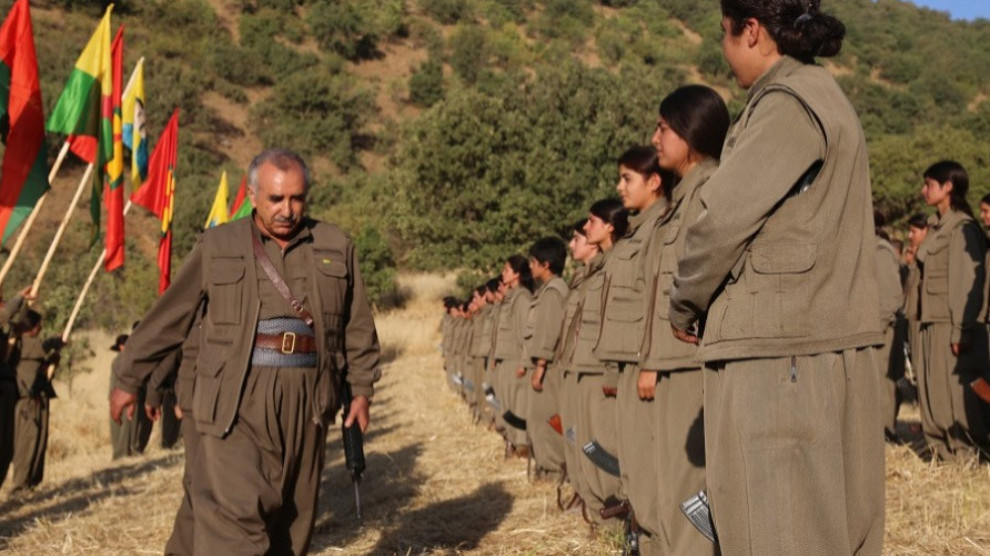Karayılan: 15 August 1984 marks a new page on Kurdish history
People's Defense Center Headquarters Commander Murat Karayılan spoke about the 15 August Initiative and how its legacy is marking the current phase of struggle.
People's Defense Center Headquarters Commander Murat Karayılan spoke about the 15 August Initiative and how its legacy is marking the current phase of struggle.

Here are some excerpts of the interview People's Defense Center Headquarters Commander Murat Karayılan made with ANF.
What is the significance of the 15 August 15 Initiative in terms of its reflection in the history of Kurdistan resistance to the present time?
The 15 August Initiative has opened a new page in the struggle of the people of Kurdistan for existence and freedom. Kurdistan has many new and important features in terms of the history of resistance. First of all, it was a resistance that was initiated with awareness by preparing itself for the first time on the basis of an ideology and philosophy. It expresses the truth and line of resistance based on Abdullah Ocalan’s philosophy, having a contemporary perspective, aiming not at ending with maintaining the existing society, but aiming at transforming the society into a revolutionary force through change, and renovation. As it is known, previous resistances have gone down in history as resistances that generally developed as a reaction to the attacks of the ruling powers or that are designed to reach a solution with the tribal or existing confederate forces.
The 15 August Initiative prepared by Leader Apo [Ocalan] is a breakthrough that set off with a little group of people but had great goals. This breakthrough, as it was developed against the sovereign-colonialist-genocidal enemy is a line of struggle that aims to transform disbelief into belief, despair into hope, fear into courage, surrender into resistance. In this respect, 15 August is different from previous resistances in many ways, and at the same time it is the beginning of a new era in the history of Kurdistan resistance.
The 1 June 2004 Campaign, which you define as the second 15 August, developed and since 2010, there is a process that you define as the Revolutionary People's War. What were the differences between the guerrilla struggle and style of this period?
First of all, it is necessary to emphasize this again: The 15 August Initiative is a breakthrough at a stage where the genocidal, assimilationist policies applied against the people of Kurdistan were pushed so hard that we were on the verge of the elimination of an entire people. In other words, it is a resistance initiative that has been developed in a mandatory manner in order to prevent annihilation, in order for the Kurdistan society to gain its existence. In this sense, it is the use of the right of self-defense and the development of self-defense in order to exist. It is not a violent attack on the established order, as the enemy wants to show. It is the self-defense of the society against the genocidal state terrorism against the people of Kurdistan.
Just as the essence of the 15 August Initiative was this, the essence of the 1 June 2004 Campaign developed in this way. The 1 June Action is the active development of self-defense against the understanding of the colonialist-genocidal-sovereign state that has not come to a solution and does not give up its efforts to eliminate an entire nation. In this respect, the effort was to see the problem and to engage in dialogue, primarily with limited and then with more stimulating actions. In this context, the actions taken between 2004 and 2010 are generally warning actions, developing within the framework of active defense.
In other words, this is when the Oslo process and different levels of dialogue have developed. After realizing that they did not have any solution intentions despite this, a more open perspective was put forward. Then Ocalan said, ‘Our first and primary choice in solving the problem is a democratic-constitutional solution based on dialogue. However, the state does not want this. The second option is the Revolutionary People's War solution and indeed the struggle has been developing in the perspective of the Revolutionary People's War since then. This is also the Fourth Strategic Period, that is, the period to develop the solution based on its own strength and will.
One more point of the Revolutionary People's War process, which differs from the previous strategic period, should be touched upon. The guerrilla and serhildan movement is not the only basic force of the Revolutionary People's War that developed in the Fourth Strategic Period. Four main forces can be mentioned in this period;
* Guerrilla force.
* Serhildan movement of the people, that is, the social struggle of the society that will develop under the leadership of women and youth.
* The organization of self-defense forces that develop the defense of the society from within the society. In other words, it is the development of a civil defense organization that can defend itself against violent attacks in every neighbourhood and in all areas where our people are located.
* The struggle of the Kurdish people in Turkey metropolis-socialist-revolutionary alliance with the democratic movement is developed based on the revolutionary role and mission of the revolutionary movement of Turkey will play working class.